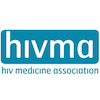and the Center for Global Health Policy
prepared for the
U.S. Senate Committee on Appropriations hearing:
“U.S. Government Response – Fighting Ebola and Protecting America”
Submitted by
Adaora Adimora, MD, MPH,
Chair, HIV Medicine Association
Kenneth Mayer, MD,
Co-Chair, Center for Global Health Policy Advisory Committee
 |
The HIV Medicine Association (HIVMA) and the Center for Global Health Policy thank the Committee for the opportunity to share our deep concern about the growing Ebola Virus Disease (EVD) outbreak in West Africa and express our strong support for robust U.S. leadership in responding to this public health emergency.
HIVMA is the professional home for more than 5,000 physicians, scientists, and other health care professionals dedicated to the field of HIV/AIDS. Housed within the Infectious Diseases Society of America, HIVMA promotes quality in HIV care and advocates policies that ensure a comprehensive and humane response to the AIDS pandemic informed by science and social justice. The Center for Global Health Policy (Global Center) is a project of the IDSA Education and Research Foundation dedicated to promoting the effective use of U.S. funding for addressing the global HIV/AIDS and TB epidemics.
We offer testimony on behalf of HIVMA and the Global Center as infectious diseases physicians specializing in HIV who has seen firsthand the potentially devastating and long-term impact of an ineffective and insufficient response to a deadly virus when it emerges. It is imperative to apply the lessons learned from the irrational and inadequate response early on to the HIV epidemic in developing the U.S. response to Ebola Virus Disease.
While there are hopeful reports of progress in fighting Ebola Virus Disease in Liberia, now is not the time to retreat in our response to addressing this deadly virus at its source. Eradicating the virus in West Africa is the best preventive measure to protect the U.S. from a serious outbreak. With new cases surging in some parts of Sierra Leone and Guinea and the possibility of a resurgence in Liberia – we must remain vigilant.
We support the Administration’s request for $6.18 billion in emergency funding for the Centers for Disease Control and Prevention (CDC) and the U.S. Agency for International Development (USAID) to ensure the response necessary to contain the Ebola Virus Disease in West Africa. This funding must not come at the expense of other global and domestic HIV and infectious diseases programs or other health programs. To decrease the already stretched resources available for these programs would be short sighted and ill-advised as the Ebola outbreak has clearly demonstrated how important it is to sustain robust public health and infectious diseases infrastructure and programs.
HIVMA and the Center for Global Health Policy support the guidance and recommendations from the CDC and the National Institutes of Health, including for monitoring of heath care workers who have cared for patients with Ebola Virus Disease and regarding restrictions on travel to and from West Africa. We commend the health care workers from the U.S. and other countries who are providing critical medical provider capacity by volunteering in Sierra Leone, Liberia and Guinea. A robust health care provider workforce is vital to ending the Ebola Virus Disease.
We believe that mandatory quarantine of health care workers and the implementation of travel bans would seriously threaten efforts to end the Ebola epidemic and are not justified based on what is known about Ebola and its transmission. Evidence-based protocols are important to minimize the risk of transmission from health care workers and other humanitarian aid workers returning from West Africa, as well as to ensure that infected individuals receive immediate, appropriate and potentially lifesaving medical care.
We appreciate the opportunity to comment on the U.S. government’s response to fighting Ebola and protecting America and urge Congress to support an effective and science-driven approach to this ongoing public health emergency.






Comments
Comments